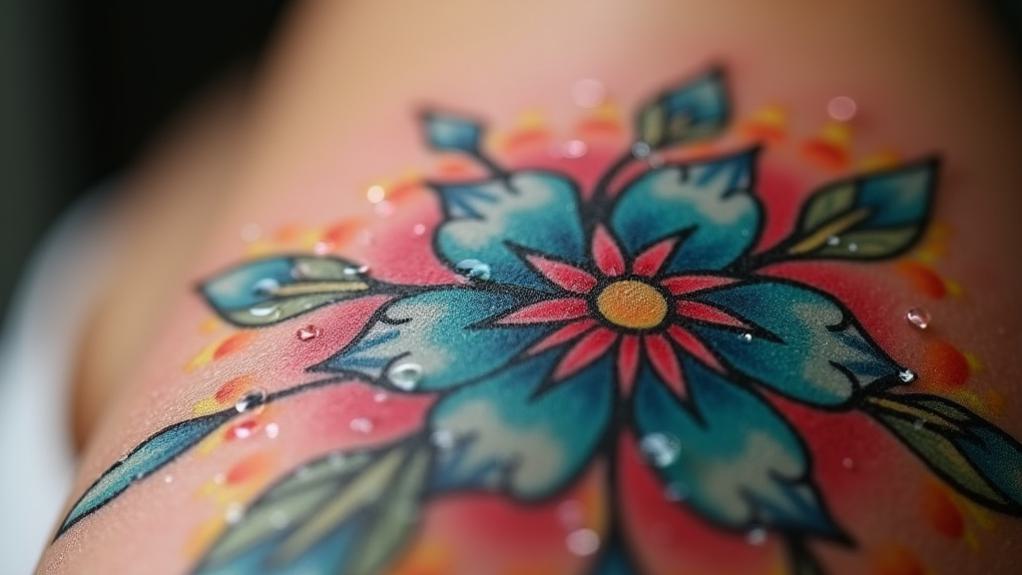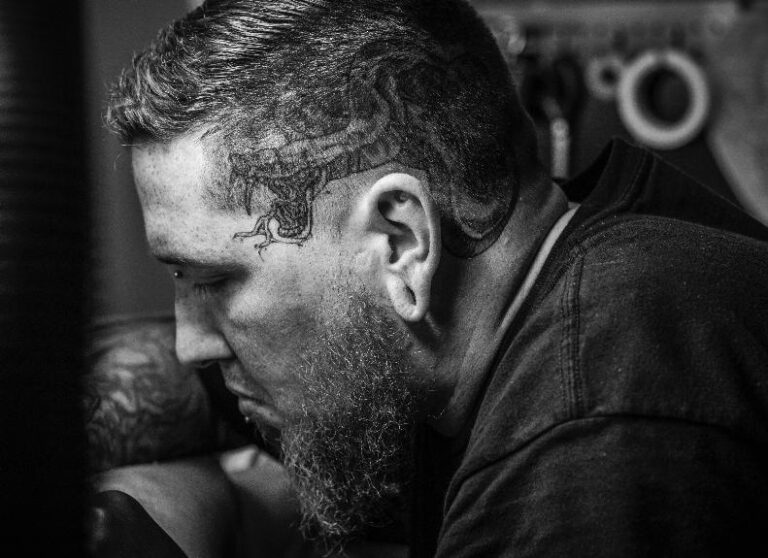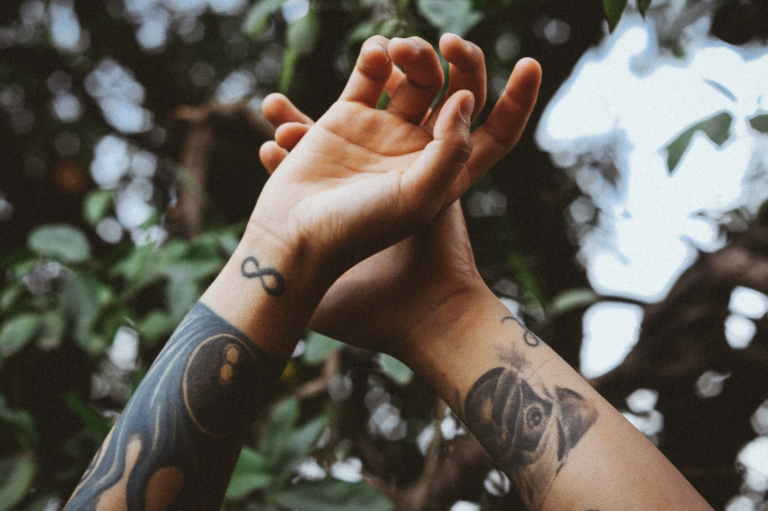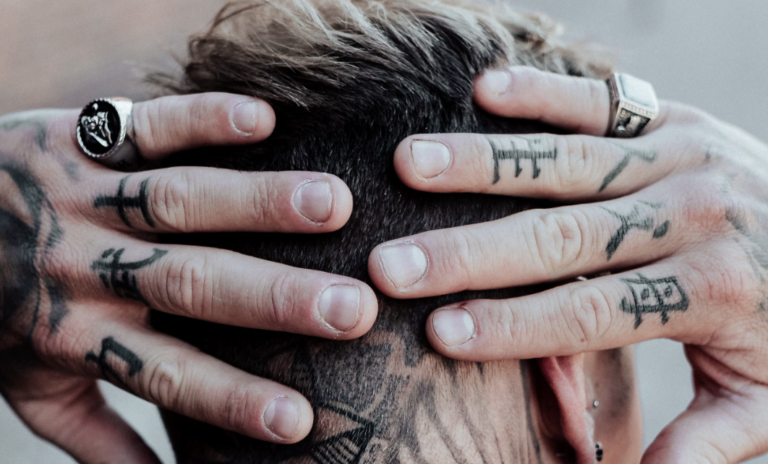Over moisturized tattoo refers to a tattoo that has been excessively treated with moisturizing products, which can lead to complications during the healing process.
If you've recently gotten a tattoo, you might be wondering how to care for it effectively. While keeping your tattoo moisturized is important, overdoing it can lead to issues such as excessive shininess or a slimy texture, indicating that you're applying too much product.
It's crucial to find the right balance between adequate moisture and over-moisturization for proper healing.
In this post, we will explore how to identify if you're over-moisturizing your tattoo, the signs to look for, and the steps you should take to rectify the situation.
Understanding Tattoo Healing Process
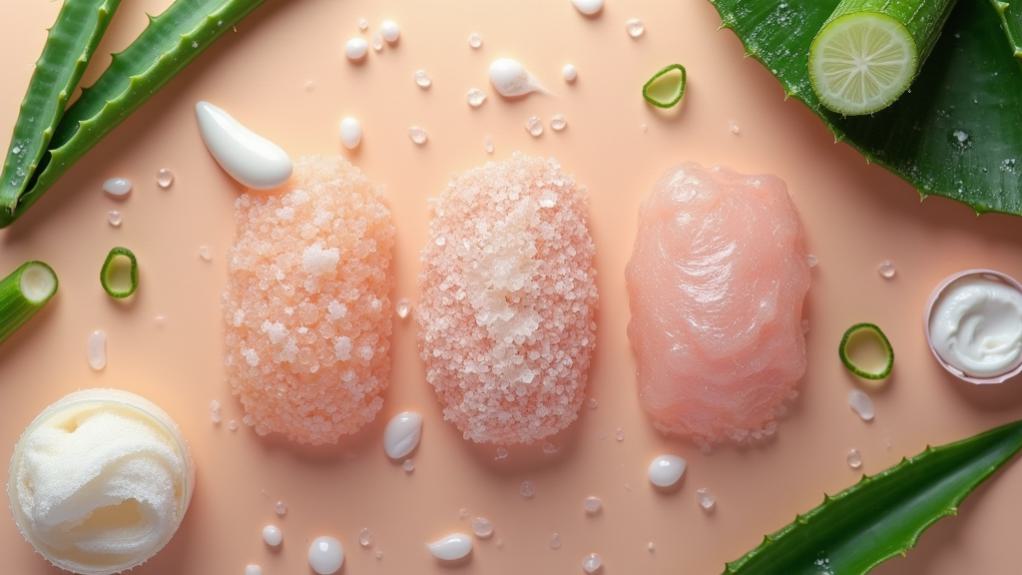
To determine if your tattoo is healing properly, look for signs such as diminishing redness and swelling within the first few days. If these symptoms worsen or persist, it may indicate an issue.
During healing, your tattoo may scab and peel, which is normal. You should gently wash the area with mild soap and pat it dry, avoiding scrubbing or picking at scabs, as this may affect the tattoo's appearance.
Itching may occur as the skin regenerates; resist scratching and lightly tap the area if it becomes bothersome. Your tattoo may begin to look less shiny and more muted, typically taking about two to four weeks to heal.
If you notice unusual colors, discharge, or persistent pain beyond the initial healing period, consult a professional. Following proper aftercare practices may help ensure your tattoo heals beautifully.
Stay vigilant during the healing process.
Signs of Over-Moisturization
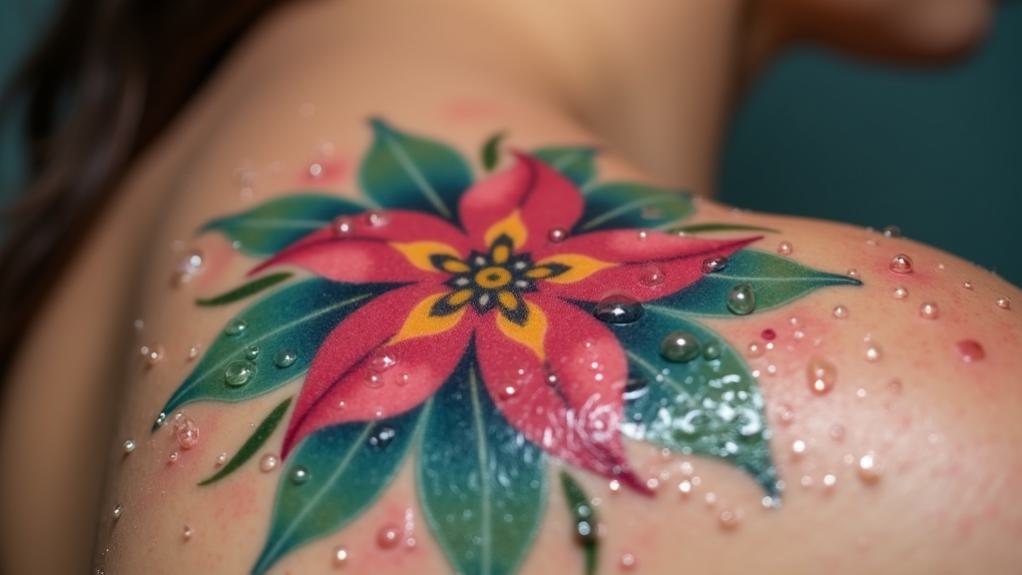
Over-moisturization may impede the healing of your tattoo and lead to complications.
Signs that you might be overdoing it with the moisturizer include excessive shininess, a slimy or tacky texture on the tattoo's surface, increased redness surrounding the tattoo, swelling or puffiness, and peeling or flaking skin that appears different from typical healing.
Your tattoo should feel hydrated but not drenched.
Recognizing these signs early may help you adjust your care routine and promote healthier healing for your tattoo.
Consequences of Over-Moisturized Tattoos
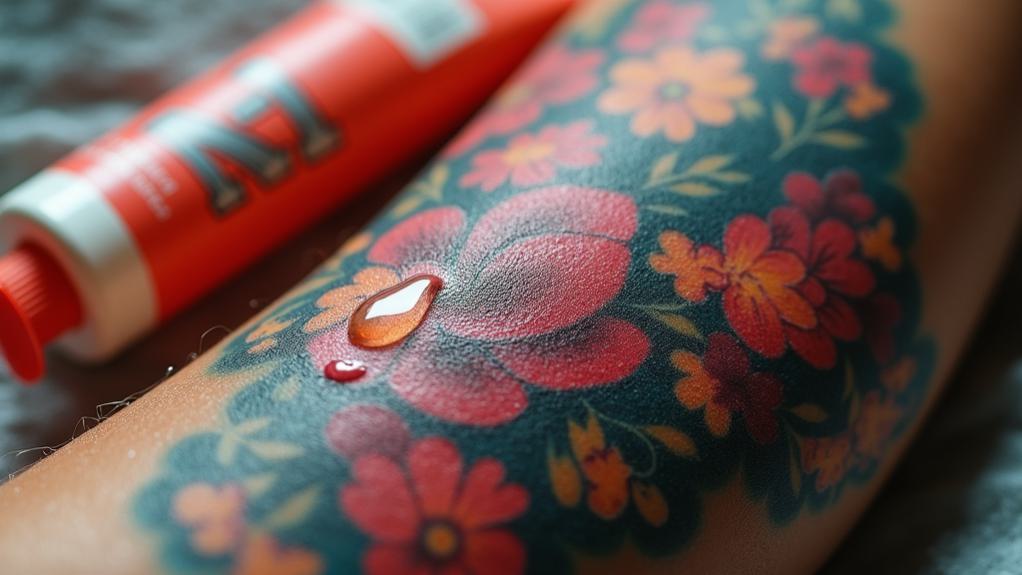
Over-moisturizing your tattoo can lead to skin irritation and rashes, which can be uncomfortable and distracting.
Additionally, excessive moisture may cause the ink to fade and blur, compromising the design's sharpness.
It's essential to find the right balance in your aftercare routine to avoid these unwanted consequences.
Skin Irritation and Rashes
Over-moisturizing a new tattoo may lead to skin irritation and rashes. Applying too much moisturizer can create a thick barrier that traps moisture and bacteria, which may cause redness, swelling, and discomfort.
You may experience sensitivity or itchiness, indicating that your tattoo isn't healing properly and may become inflamed.
If you notice any rash-like symptoms, stop using the moisturizer immediately. Switching to a lightweight, fragrance-free lotion designed for tattoos may be beneficial, or you may consult your tattoo artist for personalized recommendations.
It's important to protect your tattoo during the healing phase, and moderation is key. While a well-moisturized tattoo is important, less is often more.
Be vigilant for signs of irritation and respond promptly to prevent escalation.
Fading and Blurring Ink
Excessive moisture may lead to fading and blurring of your tattoo ink, compromising the design's sharpness and vibrancy. Over-moisturizing can cause ink particles to spread beyond their intended lines, resulting in a blurred appearance and soft outlines.
Colors may lose their richness and depth, appearing washed out due to too much moisture disrupting the ink's ability to bind with your skin, leading to uneven pigment distribution. These effects may become permanent over time, making your tattoo look aged prematurely.
To protect your tattoo, maintain a balanced moisturizing routine by applying a thin layer of tattoo-friendly moisturizer and allowing your skin to absorb it fully.
It's crucial to find the right moisture level; too little may cause dryness, while too much may blur your tattoo. If you observe any fading or blurring, consult your tattoo artist for advice on restoration and care to prevent irreversible damage.
Ideal Moisture Levels for Tattoos
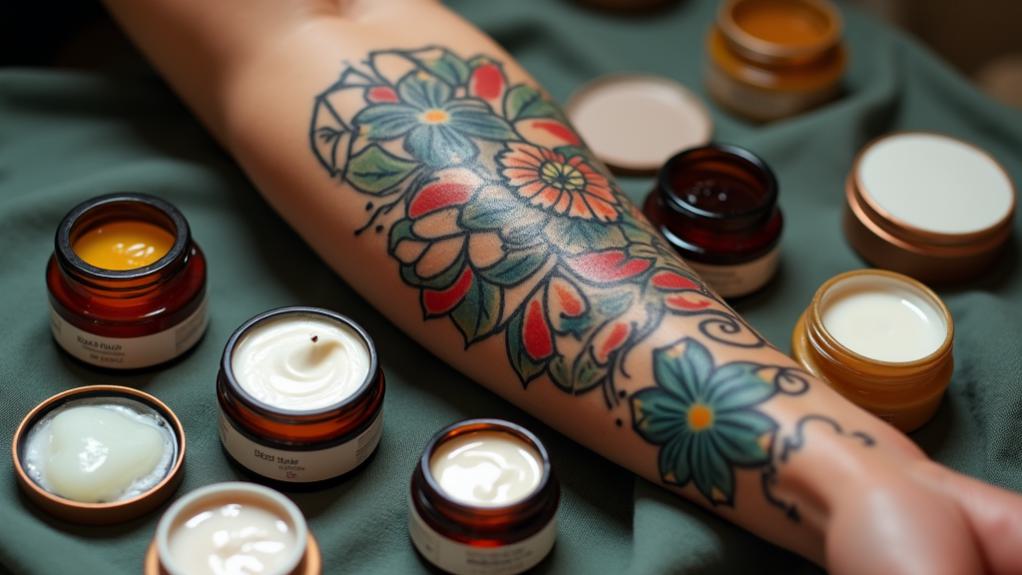
The ideal moisture level for tattoos should feel slightly moist but not soggy. Your tattoo may heal properly without excessive dryness or over-hydration, preventing scabbing while allowing the ink to settle effectively.
If your skin feels tight or looks flaky, it may be too dry. Conversely, if your tattoo appears shiny and feels gooey, you may be over-moisturizing.
Aim for a balance where your skin feels comfortable and hydrated but not overwhelmed. Environmental factors like humidity and temperature may influence how much moisture your skin needs.
In dry climates, you may need to apply a small amount more frequently, while in humid conditions, a lighter touch may be necessary.
Best Products for Tattoo Aftercare
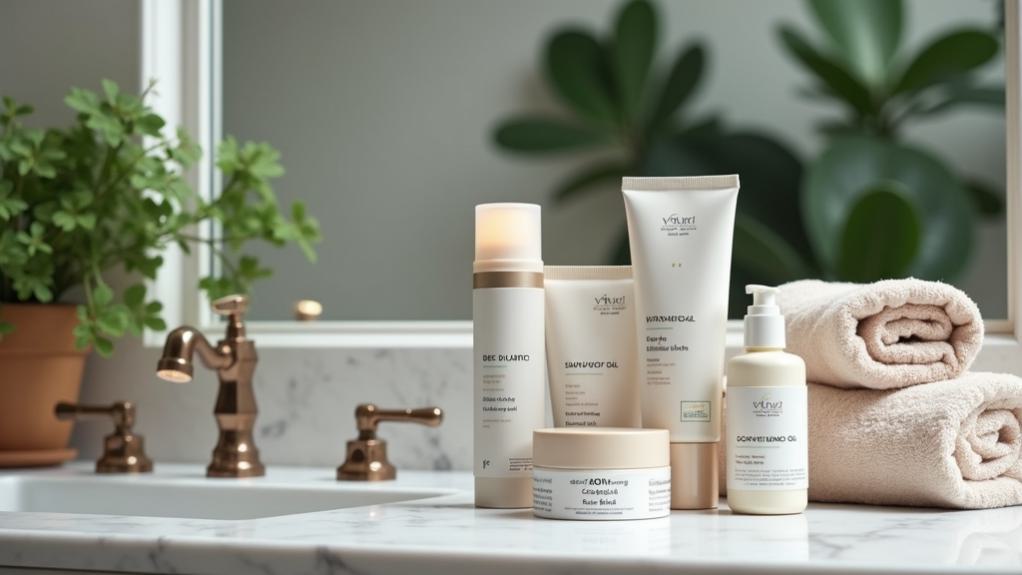
Choosing the right products for tattoo aftercare is crucial for proper healing. Use a gentle, fragrance-free soap to cleanse your tattoo, as it may help prevent irritation.
A quality tattoo-specific moisturizer may keep your skin hydrated without overwhelming it. Tattoo balms or ointments with ingredients like shea butter, coconut oil, or vitamin E may promote healing and maintain the vibrancy of your tattoo.
Avoid products with alcohol or heavy fragrances, as they may cause irritation or over-moisturization. Consider using a protective barrier cream if you're exposed to the sun or water, as it may shield your tattoo from harmful elements during the healing process.
Look for hypoallergenic labels to reduce the risk of allergic reactions. Once your tattoo has healed, apply a broad-spectrum SPF sunscreen to protect it from fading.
Invest in quality products for your tattoo's care to maintain its beauty for years to come.
Remedies for Over-Moisturized Skin
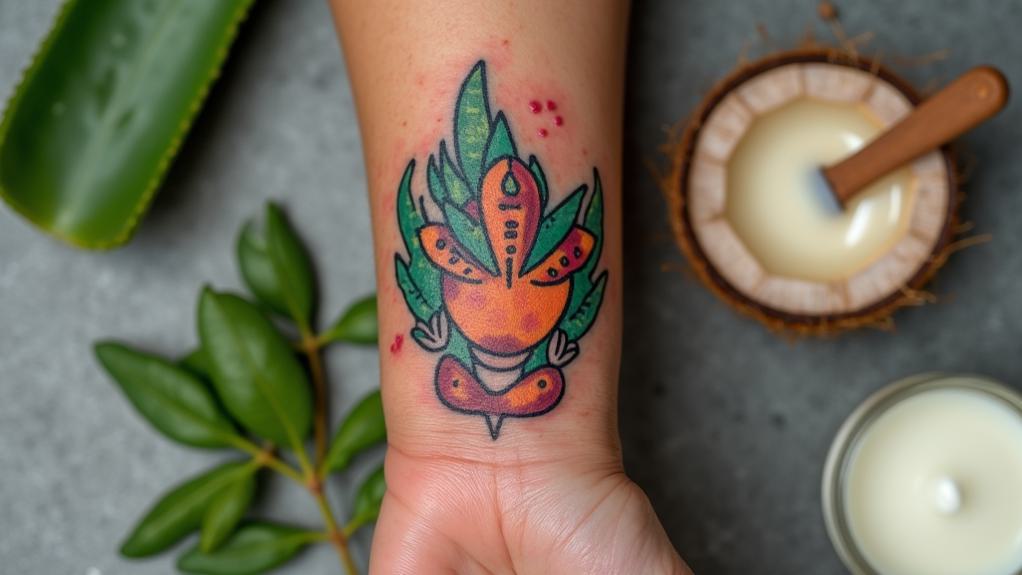
Over-moisturized skin may lead to irritation and breakouts, particularly in areas with tattoos. If your tattooed skin feels excessively greasy or looks shiny, take the following steps:
- Gently cleanse the area with a mild, fragrance-free soap to remove excess moisture and products.
- Pat the skin dry with a clean towel, avoiding rubbing that could irritate the tattoo.
- Apply a light, oil-free moisturizer that contains ingredients like aloe vera or hyaluronic acid, which may hydrate without clogging pores.
- If irritation occurs, consider using a soothing ointment with zinc oxide or calendula to promote healing.
- Temporarily minimize your moisturizing routine by skipping lotion for a few days to allow your skin to breathe and reset.
- Monitor your skin's reactions to various products and adjust your routine as needed.
Preventative Measures for Tattoo Care
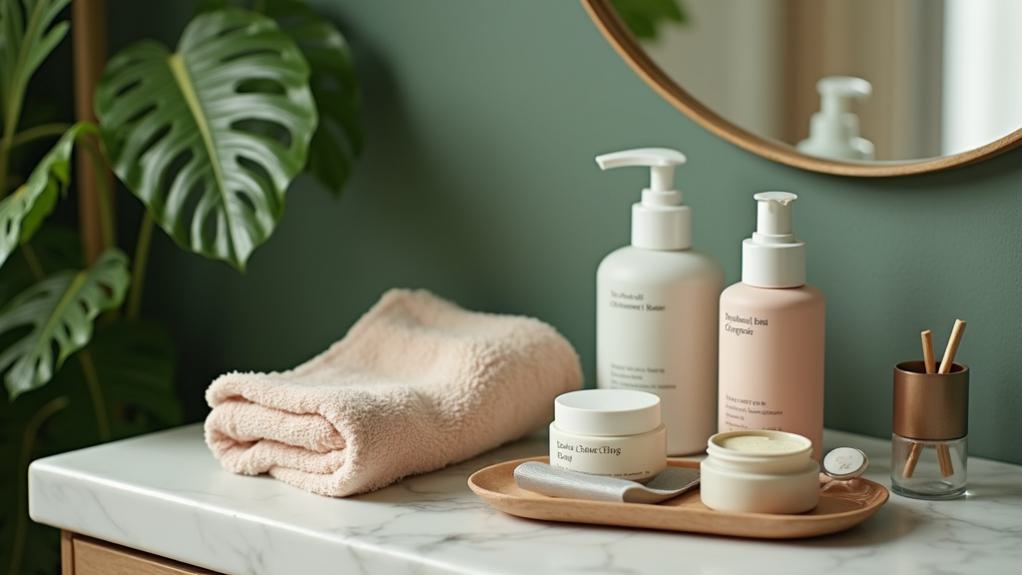
Taking care of your tattoo from the very beginning may greatly enhance its appearance and longevity. Follow your tattoo artist's aftercare instructions closely, as they know what works best for the specific ink and technique used on your skin.
Keep the tattoo clean by gently washing it with mild, unscented soap and patting it dry with a clean towel. Scrubbing may irritate the skin.
When moisturizing, apply a thin layer of a recommended ointment or lotion; over-moisturizing may lead to issues, so monitor how your skin reacts.
Stay out of direct sunlight, as UV rays may fade your tattoo over time. If you must be in the sun, apply a high SPF sunscreen once the tattoo is fully healed.
Avoid scratching or picking at scabs, as this may ruin the design and lead to infection.
If you notice excessive redness, swelling, or discomfort, consult a healthcare professional.
Frequently Asked Questions
How Long Does It Take for an Over-Moisturized Tattoo to Heal?
Over-moisturized tattoos may take longer to heal than usual.
Typically, a well-cared-for tattoo may heal in two to three weeks, but excessive moisture may lead to issues like peeling or scabbing, potentially extending the healing time.
It may take an extra week or more to fully heal.
Keep an eye on it, and if it doesn't improve, you may want to consult with a professional for advice.
Can I Still Moisturize if My Tattoo Feels Dry?
Yes, you can still moisturize your tattoo if it feels dry.
Just be careful not to overdo it. Apply a thin layer of a fragrance-free moisturizer or a tattoo-specific ointment to keep the skin hydrated without clogging the pores.
Monitor how your tattoo reacts; if it starts looking too shiny or feeling overly wet, you may need to cut back on the moisturizer.
Balance may be key to ensuring your tattoo heals beautifully.
Are There Specific Signs for Different Skin Types?
Yes, there are specific signs for different skin types when it comes to tattoos.
If you have oily skin, you may notice excess shine or a greasy feeling, indicating you may not need much moisture.
For dry skin, you may see flakiness or tightness, signaling that it may be time to hydrate.
If your skin is sensitive, you may look out for redness or irritation, as this may mean you need to adjust your moisturizing routine for comfort.
What Should I Avoid Applying to an Over-Moisturized Tattoo?
Avoid applying heavy creams, oils, or any products that could clog the pores to an over-moisturized tattoo.
Stick to lighter, breathable products to allow your skin to recover. Alcohol-based products or harsh exfoliants may irritate the skin further, so it's best to avoid them.
Scented lotions may cause allergic reactions, so steer clear of those as well.
Keeping it simple may help your tattoo heal properly without adding unnecessary complications.
How Can I Identify the Right Moisturizer for My Skin?
To identify the right moisturizer for your skin, start by determining your skin type—whether it's oily, dry, or combination.
Look for ingredients that may suit your needs; for example, hyaluronic acid may provide hydration, while salicylic acid may help with oiliness.
Always test a small amount on your skin first to check for reactions.
Conclusion
In summary, keeping your tattoo properly moisturized is key to its healing. If you notice signs of over-moisturization, act quickly to cleanse and allow your skin to breathe. Remember to use lightweight, fragrance-free products to maintain that ideal moisture level. By following your tattoo artist's aftercare instructions and taking preventative measures, you can guarantee your tattoo stays vibrant and heals beautifully. Don't let over-moisturization compromise your artwork—stay attentive and care for your skin!

